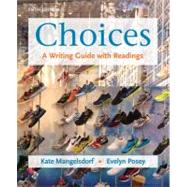
Note: Supplemental materials are not guaranteed with Rental or Used book purchases.
Purchase Benefits
What is included with this book?
Evelyn Posey is a Professor in the Department of English at the University of Texas at El Paso. She has served as an associate vice president for instructional design and technology integration, associate dean in the College of Liberal Arts, director of English education in the department of English, and director of the West Texas Writing Project. Posey has published articles in journals such as Computers and Composition, The Journal of Developmental Education, and Teaching English in the Two-Year College.
The New copy of this book will include any supplemental materials advertised. Please check the title of the book to determine if it should include any access cards, study guides, lab manuals, CDs, etc.
The Used, Rental and eBook copies of this book are not guaranteed to include any supplemental materials. Typically, only the book itself is included. This is true even if the title states it includes any access cards, study guides, lab manuals, CDs, etc.